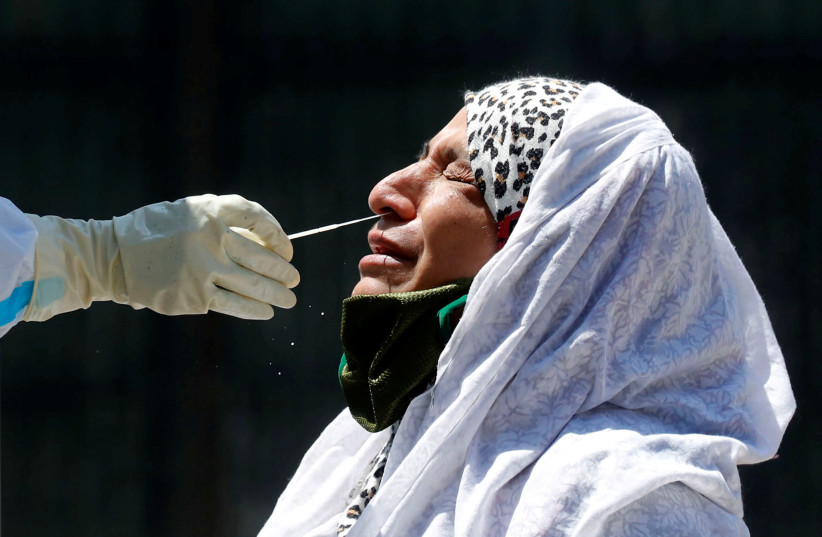
A new questionnaire by the Weizmann Institute of Science could tell you what your chances of having COVID-19 are and help countries decide who to prioritize for testing as testing materials remain hard to get.
The survey was built based on a model detailed in a paper published by researchers from the Weizmann Institute, Rambam Medical Center, Maccabi and Clalit Healthcare Services, King’s College London and Tel Aviv University, among others.
The researchers realized that testing capabilities were limited around the world, and a method was needed to effectively prioritize individuals for testing. The model estimates the probability of an individual to test positive for COVID-19 based on nine questions.
The model was devised from a subsample of a national symptom survey that was answered over two million times in Israel in two months and a targeted survey distributed to all residents of several cities in Israel. Overall, 43,752 adults participated.
The team’s analyses showed interactions between several symptoms and age, suggesting that the disease manifests in different ways in different age groups. The team’s research also analyzed milder cases, not just hospitalized patients, creating a more widely applicable model.
The information gathered in the study allowed the team to form a model that can take the input of gender, age and symptoms and predict how likely it is that an individual is infected.
The model was also validated in the US, UK and Sweden.
The survey, available online in both Hebrew and English, consists of three questions: gender, age and what symptoms (if any) are being experienced.
Those who have symptoms, need to be tested according to Health Ministry regulations or are unsure if they need to be tested, should contact a doctor, as in order to receive a coronavirus test in Israel, one must receive a referral from a doctor.
Testing regulations have changed multiple times, but referrals are generally given to those with symptoms or those who have come into contact with an infected person. Those living in a red zone may also be eligible for a coronavirus test. People flying outside of the country may be tested as well.
Tests are conducted through HMOs or at drive-thru testing centers. Results are received through each patient's HMO.
